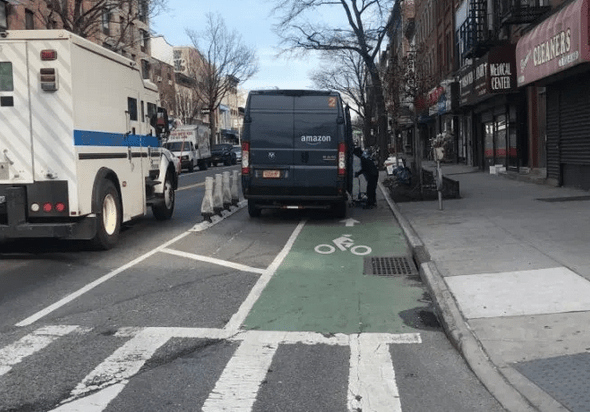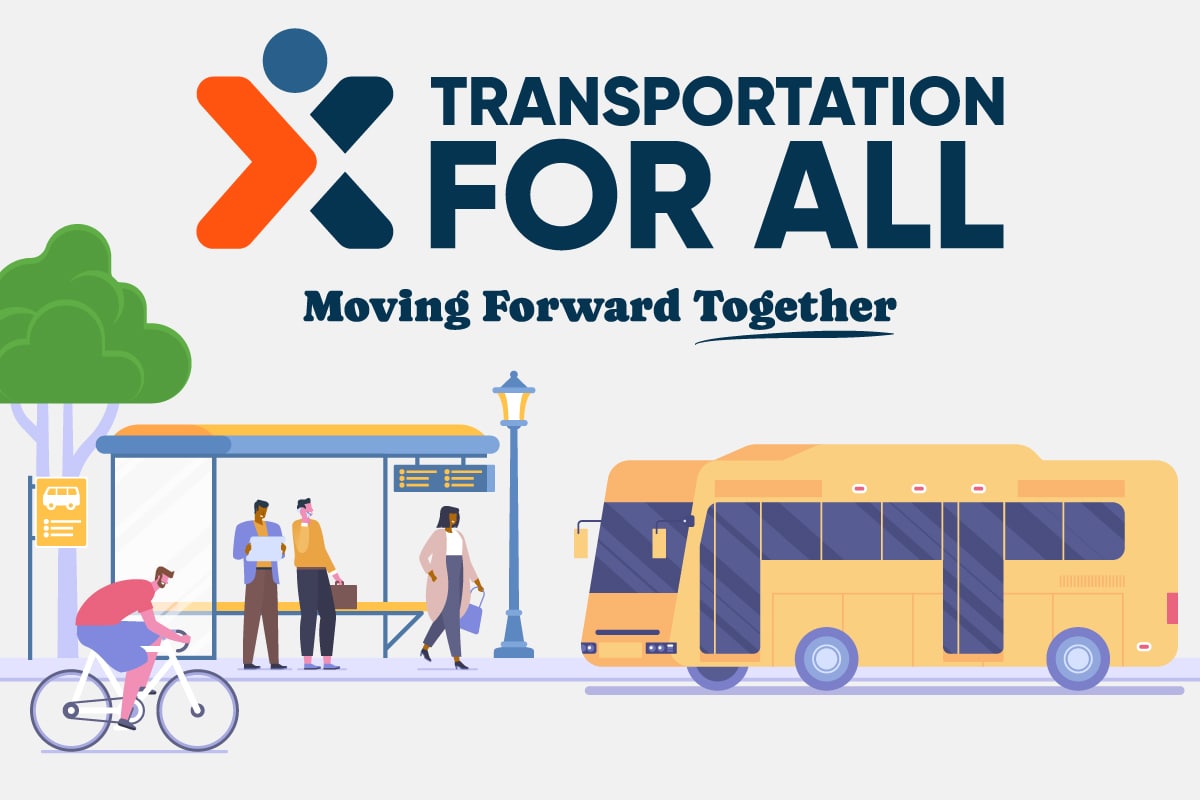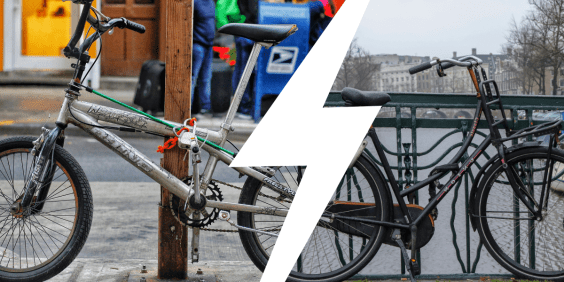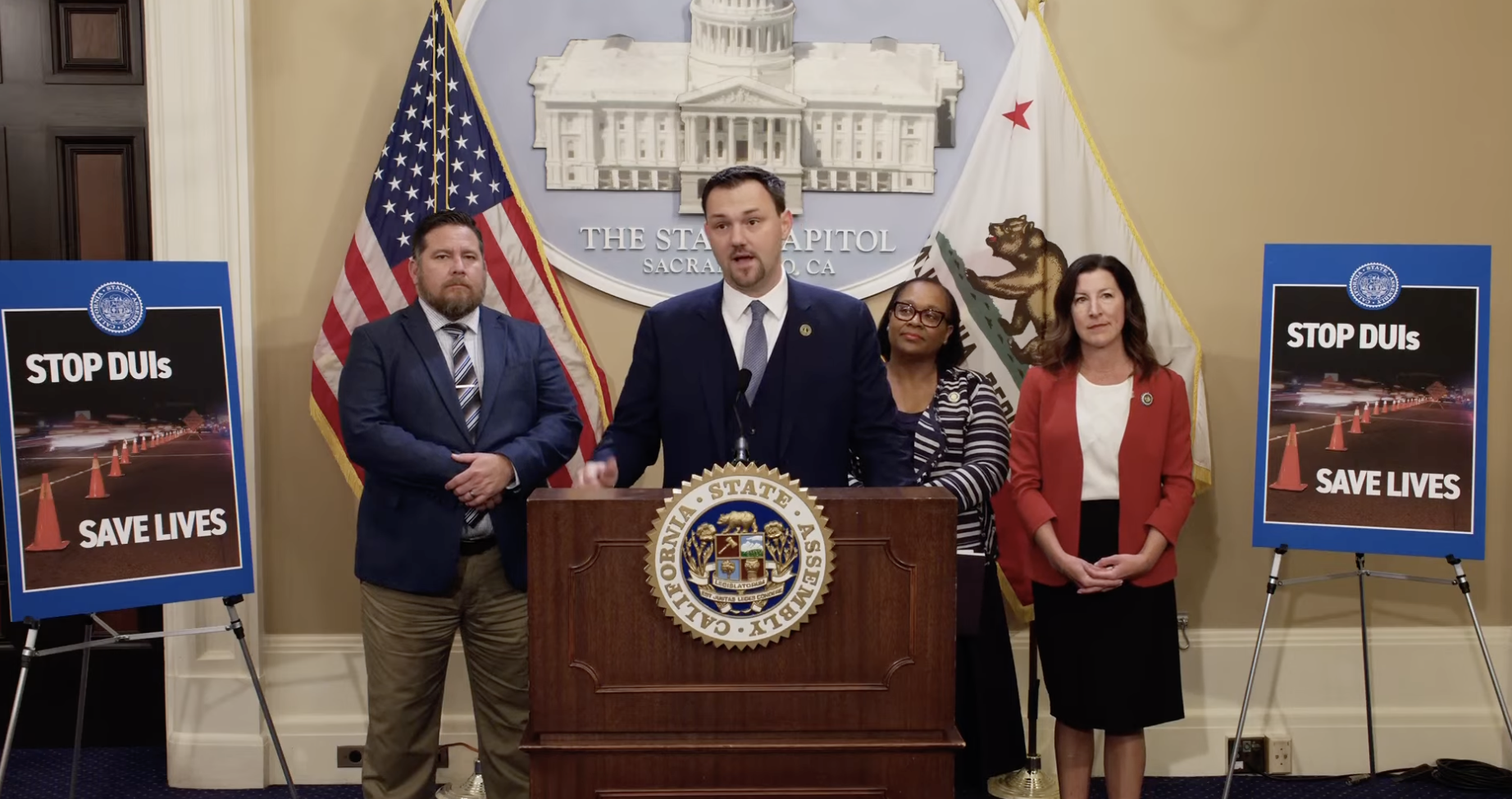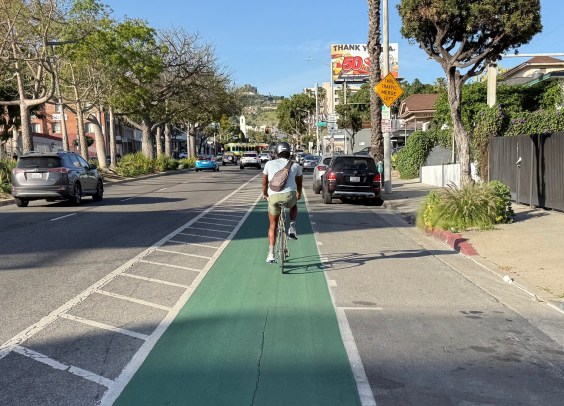A new pilot project launches today that could change the way American cities do on-street parking — and finally stop delivery drivers from double-parking in the bike lane to boot.
In partnership with curb management company Coord, the city of Omaha will install five smart loading zones in hot areas that drivers can reserve on their cell phones before they pull up to make a quick delivery or drop off a taxi passenger. The price of the meters will adjust dynamically based on demand, and will even hold a space for a driver for a while when she's located within a mile of her desired spot.
Omaha's pilot will start by offering drivers free parking, simply to gather data about which curbs are in the highest demand, but the city hopes the program could become a revenue source in the future. And once the city has a functional dynamic pricing program in place, it plans to more aggressively ticket drivers who don't use the convenient new program.
"As deliveries and ride hailing become more and more ingrained into our city's street culture, we need more tools to understand who's using this curb," said Ken Smith, Omaha's parking and mobility manager. "Coord will help us get that — and once we get that data, we can start layering on that enforcement."
In the other cities that will pilot Coord's tech in the coming months – Aspen, Nashville, and West Palm Beach — enforcement and payments will be a part of the recipe from day one. Coord also supplies local traffic officers with app-based tools to quickly ticket drivers and educate them on how to use the app; the app allows a driver to notify law enforcement if he or she arrives at a reserved space only to find it taken.
Coord also hopes that the appeal of consistently available loading zones near their destinations will incentivize drivers to follow the rules.
"The carrot is, even if they're paying to park, they know they have a place to unload, which many drivers right now simply don't," said Dawn Miller, Coord's head of Policy and Partnerships. "Enforcement is the stick, but it's not the focus. Amazon drivers don't typically park in a bike lane because they don't care about cyclists; it's because cities just don't have enough loading space — because they've just devoted too much of their space to private on-street parking of private cars. There is enough parking for delivery trucks that really need it if we fix that."
The tech could help eliminate a perennial danger for road users: double-parked drivers blocking the street, forcing the vehicles behind the scofflaws to pass out of their lane and potentially collide with oncoming traffic. Since the vast majority of American city roads have no true protected cycling infrastructure, that's a particularly big deal for cyclists; especially in busy cities like New York, drivers illegally parked in the driving lane are a frequent ingredient in the deaths of bikers.
"Cyclists are definitely the most sensitive to curb use. Anytime you have a block in the road, they're the ones who are going to struggle the most," said Smith. "If we can get those delivery vehicles next to the curb, that's a benefit to everybody."
Coord's core product essentially combines three proven kinds of parking management technology that are already in action in many cities today: advanced reservations at premium prices, surge pricing during periods of peak parking demand, and cell phone-based payments.
Curb management companies have been betting for a long time that the first two strategies would eliminate a lot of unnecessary driving, both by incentivizing modes that aren't subject to surge charges (like biking, walking, and transit), and also by eliminating the need for drivers to circle endlessly looking for an open spot (which may account for up to 30 percent of congestion in some U.S. downtowns, not to mention an unquantified share of our global carbon emissions). Cell phone payments make the whole process convenient, especially as Americans increasingly go cash-free
But Coord's Nebraska pilot is unique for its focus on solving the puzzle of curbside deliveries, which have long been a sticking point for transportation planners — especially since the rise of online retail. The e-commerce industry is tight-lipped about its impact on American downtowns, but visit virtually any populous community, and you'll find more than a few Amazon vans jockeying for curb space with supply trucks delivering shipments to local businesses, mail carriers struggling to get residents the daily post, and of course, the perennial Uber driver idling as he waits for their riders to spy Charles in the white Kia Soul.
That's particularly true during the ongoing COVID-19 pandemic; food delivery services like Instacart, Shipt, and Walmart Grocery are setting monthly records, even as consumer driving continues to climb towards pre-corona levels. Simultaneously, restaurants and businesses have begun using parking spaces for socially-distanced outdoor dining, shopping, and curbside pick-up — accelerating competition for the curb even more.
American cities' traditional solution to the delivery and drop-off problem — designated loading zones and times on select blocks — has proven insufficient to manage the realities of the booming curb-dependent economy. And even stringent bans on double-parking are only as good as the city's efforts to actually enforce them — and cities don't always come through.
But by pricing curbside parking spots like the scarce resource they are, and letting delivery drivers plan hold their preferred spaces far in advance, Coord hopes it can incentivize delivery companies to run their routes during cheaper, off-peak hours — and incentivize cities to strengthen their policies against the dangerous practice of double-parking.
"Our company is about helping cities align their curb space with their values – and often, it's not very well aligned," says Miller. "I had a client say to me the other day, 'my city says it wants 30 percent active mode share, but our curb space doesn't reflect that.' Cars blocking crosswalks, bike lanes, bus lanes – it all has an impact on who will choose sustainable modes. We're hoping this is one part of the puzzle of making streets hospitable to everyone."
Omaha leaders are hopeful that their constituents both within and beyond the delivery sector will embrace Coord once they see how it impacts their overall mobility — even if they sometimes pay a little more at the meter once the program institutes fees.
"There's an obvious benefit for drivers that also benefit non-drivers; there's less circling the block, which means less conflicts with other road users," said Smith. "And if cities don't do this, we're just going to see more and more of these vehicles blocking the way."
